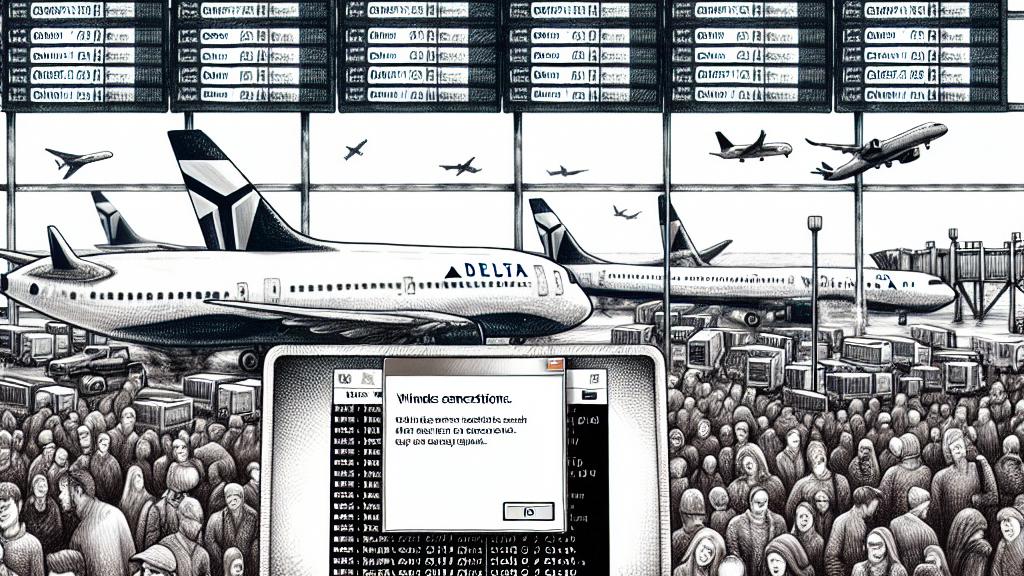Microsoft vs Delta: The Battle of Ignored Help Amidst Outage Chaos!
Overview
- Delta Airlines faced a catastrophic crisis following a malfunction in a CrowdStrike software update that caused massive disruptions.
- Microsoft offered immediate assistance for the outage, which Delta Airlines repeatedly declined, raising questions about crisis management.
- Delta aims to recover $500 million in damages through legal action against both Microsoft and CrowdStrike, reshaping accountability in the tech and aviation industries.

The Catalyst of Chaos: An Operational Breakdown
On July 19, 2024, Delta Airlines, a major airline in the United States, faced a disastrous operational failure caused by a faulty update to CrowdStrike's security software. This update led to widespread crashes on Windows devices globally, resulting in the cancellation of over 4,000 flights and leaving thousands of passengers stranded. The financial impact on Delta was enormous, with losses estimated at around $500 million. Additionally, critical services relying on Delta, such as hospitals and government agencies, were severely disrupted, highlighting the interconnected nature of modern aviation and technology.
A Missed Opportunity: Microsoft's Offer of Help
In the wake of the chaos, Microsoft stepped forward with offers of free assistance, indicating a willingness to help Delta manage the crisis. Satya Nadella, Microsoft’s CEO, personally contacted Delta's CEO Ed Bastian to extend this support. However, Delta's management declined these offers multiple times, a decision that has been heavily scrutinized. Many industry experts have questioned Delta's crisis management strategy and decision-making processes, suggesting a significant misjudgment in not accepting the help, which could have alleviated some of the operational issues they faced during the outage.
Legal Disputes and Industry Implications
As Delta Airlines prepares to take legal action against Microsoft and CrowdStrike, seeking a staggering $500 million in damages, the stakes have never been higher. Microsoft has asserted its readiness for a robust defense, arguing that the airline's infrastructure and failure to modernize contributed to the severity of the outage's impact. Furthermore, the quick recovery of Delta's competitors, like American Airlines and United Airlines, raises further questions about Delta's internal systems and operational resilience. This burgeoning legal battle could set new precedents in how technology firms and airlines navigate accountability and crisis management in an increasingly digital world.

Loading...